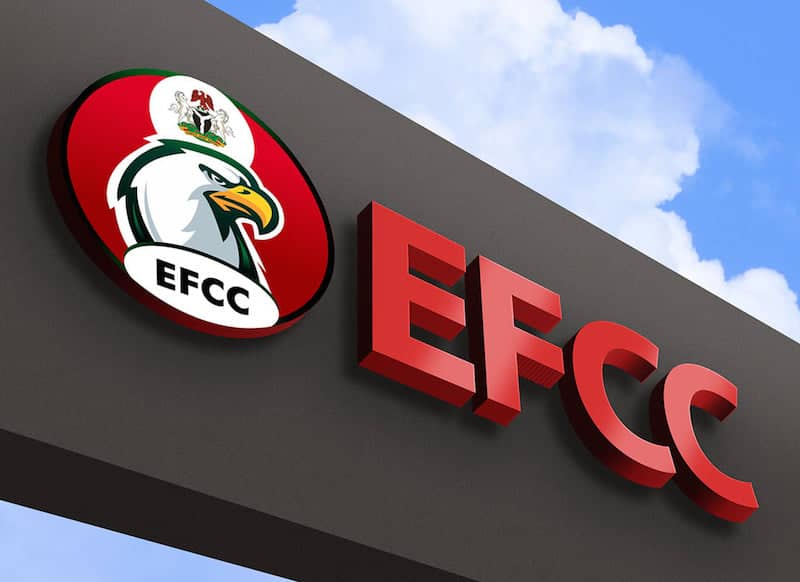The Anambra State Government has announced its intention to withdraw from the lawsuit to declare the operations of the Economic and Financial Crimes Commission (EFCC) illegal.
Represented by its Attorney General, Prof. Sylvia Ifemeje, the state informed the Supreme Court of its decision to no longer participate in the legal proceedings initially initiated by Kogi State.
The notice of withdrawal was dated October 20. This announcement coincided with Osun State’s request, made by its Attorney General, Mr. Oluwole Bada, to consolidate its objections to the EFCC‘s operations with those of Kogi State.
Osun State informed a seven-member panel of the Supreme Court, led by Justice Uwani Abba-Aji that it seeks the same remedies as those sought by Kogi State against the EFCC.
Meanwhile, Sokoto State, which had previously joined as a co-plaintiff, did not send a legal representative to resume the proceedings on Tuesday.
Other states that confirmed their participation included Kogi, Kebbi, Katsina, Jigawa, Oyo, Benue, Plateau, Cross River, Ondo, Niger, Edo, and Bauchi.
States such as Adamawa, Taraba, Ebonyi, Imo, and Nasarawa also announced their presence.
The Attorney General of the Federation and Minister of Justice, Prince Lateef Fagbemi, SAN, appeared as the sole defendant in the case and did not contest Anambra State’s request to withdraw from the proceedings.
Sixteen states within the federation have approached the Supreme Court to contest the legitimacy of the Economic and Financial Crimes Commission (EFCC).
These states assert that the anti-corruption agency was not properly established by the administration of former President Olusegun Obasanjo. It is important to note that the EFCC was created through an Act of the National Assembly on December 12, 2002, during Obasanjo’s tenure.
After the Senate appointed and confirmed Mallam Nuhu Ribadu as its first Executive Chairman, along with other administrative officials, the Commission began its operational activities on April 13, 2003, although its Establishment Act was subsequently amended in 2004.
In the case presented to the Supreme Court, the states, represented by their respective Attorneys General, contended that the establishment of the EFCC did not adhere to the requirements set forth in Section 12 of the 1999 Constitution, as amended.
The plaintiffs argued that it is a constitutional requirement for a majority of the Houses of Assembly of the States to vote in favor of the EFCC Act, asserting that this was not a matter solely within the purview of the National Assembly.
They informed the Supreme Court that the states were not consulted prior to the establishment of the EFCC by the administration of President Obasanjo.
Furthermore, they referenced a previous ruling in the case of Dr. Joseph Nwobike Vs Federal Republic of Nigeria, where the Supreme Court determined that the EFCC Establishment Act was based on a United Nations Convention against corruption and that the enactment of this law in 2004 did not comply with the stipulations of Section 12 of the 1999 Constitution, as amended.
The plaintiffs maintained that due process was not observed in the enactment of the EFCC Establishment Act, rendering it inapplicable in states that did not endorse it in accordance with the provisions of the 1999 Constitution, as amended. They concluded that any agency formed under this Act should be considered an illegal entity.
The 16 states are relying on the fact that since the 1999 Constitution, as amended, is the supreme law of the land, any Act of the National Assembly that is inconsistent with the Constitution ought to be declared a nullity.
Kogi state had specifically raised six questions for the apex court to determine, even as it sought nine principal reliefs.
It, among other things, prayed the Supreme Court for: “A declaration that the Economic and Financial Crimes Commission (EFCC), the Nigerian Financial Intelligence Unit (NFIU) or any agency of the Federal Government of Nigeria cannot investigate, requisition documents, invite and or arrest anyone with respect to offences arising from or touching on the administration and management of funds belonging to Kogi state of Nigeria or any Local Government Area of Kogi State.”
As well as: “A declaration that the Federal Government of Nigeria, through the Nigerian Financial Intelligence Unit (NFIU) or any agency of the Federal Government, lacks the power to issue any directive, guideline, advisory or any instrument howsoever called for the administration and management of funds belonging to Kogi State of Nigeria or any Local Government Area of Kogi state.”




